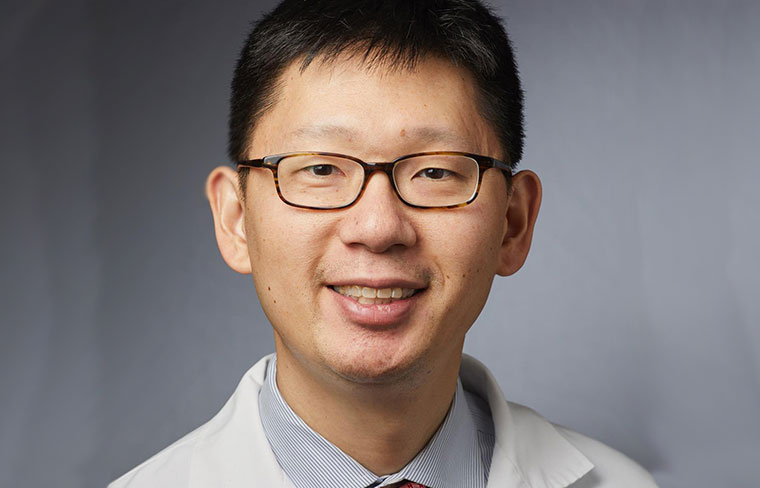
During Sunday’s Battle of the Heavyweights: Controversies in Clinical Practice symposium, six clinical research “heavyweights” will debate three difficult questions in clinical gastroenterology and hepatology. The 90-minute session is sponsored by the AGA Institute Clinical Practice Updates Committee.
The first debate will focus on whether colorectal cancer (CRC) screening should be started at age 45 in average-risk individuals. Douglas K. Rex, MD, AGAF, professor of medicine at the Indiana University Medical Center, Indianapolis, will debate the issue with David A. Lieberman, MD, AGAF, professor of medicine at the University of Oregon Health & Science University, Portland, and current president of AGA.
“Our current CRC guidelines suggest that screening should start at age 50 in U.S. adults who are at average risk for cancer. However, there are emerging epidemiologic data confirming a striking increase in CRC among individuals age 18 to 50,” said session co-moderator Joseph K. Lim, MD, AGAF, professor of medicine and the director of the Yale Viral Hepatitis Program at the Yale School of Medicine, New Haven, CT. “In this context, in 2018 the American College of Surgeons released controversial new guidelines calling for a change to initiate screening at age 45 among average-risk individuals.”
Dr. Lim said the debaters would offer arguments for and against earlier screening and discuss whether there are predictors to help clinicians identify individuals under age 50 to screen.
“Patients and clinicians need guidance on appropriate methods of screening, either based on stool-based testing such as stool DNA tests or visual-based tests such as CT colonography and standard colonoscopy,” Dr. Lim said. “This is arguably one of the hottest topics in gastroenterology in 2019 and will make for an excellent discussion.”
In the second debate, Gary R. Lichtenstein, MD, AGAF, professor of medicine and director of the Inflammatory Bowel Disease (IBD) Center at the Hospital of the University of Pennsylvania, Philadelphia, and David T. Rubin, MD, AGAF, professor of medicine and co-director of the Digestive Diseases Center at University of Chicago Medicine, IL, will argue the merits of endoscopic resection versus traditional surgery in patients with IBD-associated dysplasia of the colon.
“IBD is well known to be associated with an increased risk of colorectal cancer and our traditional screening guidelines have called on gastroenterologists to initiate CRC screening to detect dysplasia in patients with ulcerative colitis or Crohn’s colitis eight to 10 years after initial diagnosis,” Dr. Lim said.
However, recent guidelines have begun to shift from random biopsies throughout the colon to targeted biopsies based on endoscopically visible lesions on chromoendoscopy-supported colonoscopy, he noted.
“Among individuals who have endoscopically visible lesions, there remains controversy as to whether endoscopic resection should be pursued, as opposed to traditional surgical treatment of colonic dysplasia in patients with IBD. That’s the dilemma we’ve posed to our two speakers,” Dr. Lim said.
In the final heavyweight battle, John Vargo, MD, MPH, AGAF, chair of the department of gastroenterology and hepatology and vice chairman of the Digestive Disease Institute at the Cleveland Clinic, OH, and John M. Inadomi, MD, AGAF, professor of medicine and head of the division of gastroenterology at the University of Washington, Seattle, will debate whether or not endoscopy should be routinely performed with anesthesia.
“Traditionally, standard upper endoscopy and colonoscopy have been performed with conscious sedation using sedatives and narcotic analgesics,” Dr. Lim said. “However, there has been a significant increase in the utilization of monitored anesthesia care (MAC) since the early 2000s.”
That increase, Dr. Lim said, is driven largely by evidence indicating MAC is associated with increased patient satisfaction, reduced pain levels and shorter recovery and discharge times within endoscopy units.
“However, limited data are available to support any association between the use of MAC services and metrics of colonoscopy performance, such as adenoma detection rate,” Dr. Lim said. “Our speakers will address whether MAC should be routinely recommended or restricted to defined subpopulations of high-risk patients undergoing endoscopy and colonoscopy.”
Please refer to the DDW Mobile App or the Program & Exhibits section for the time and location of this and other DDW® events.



